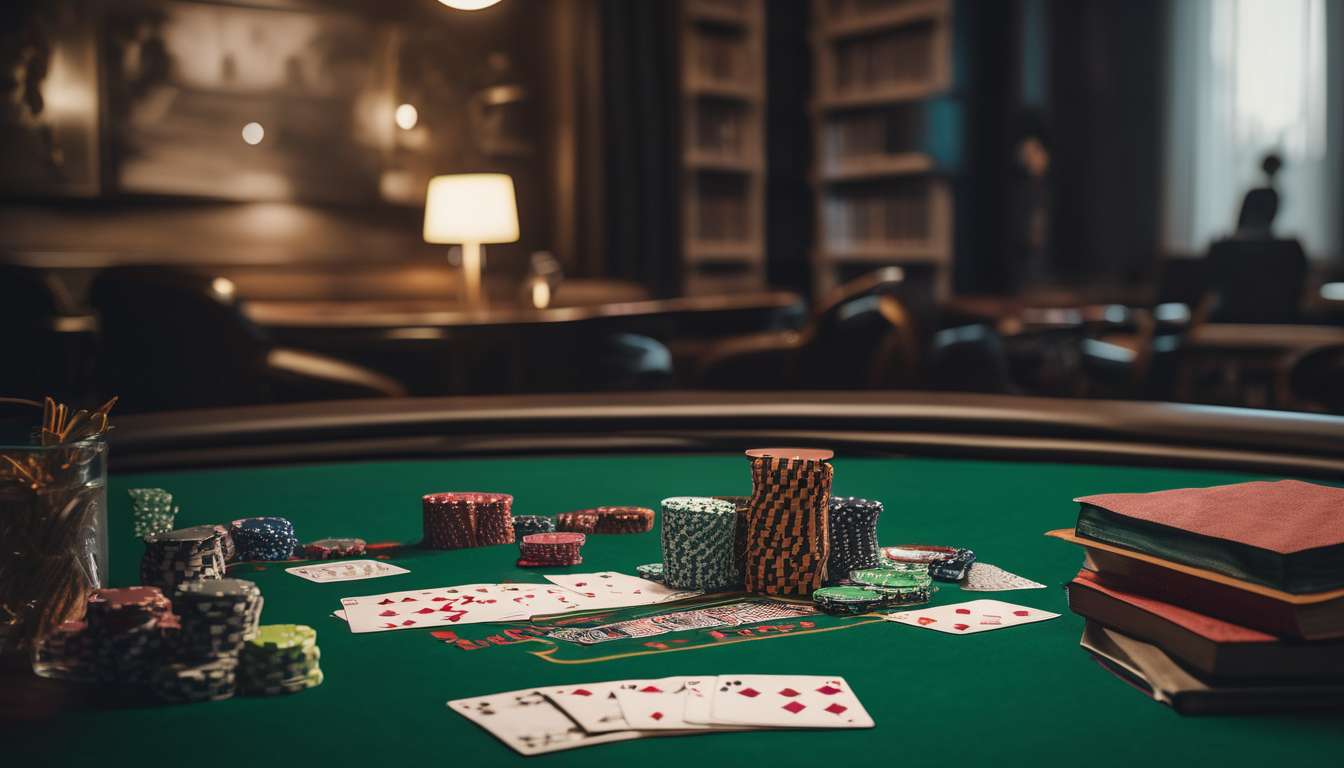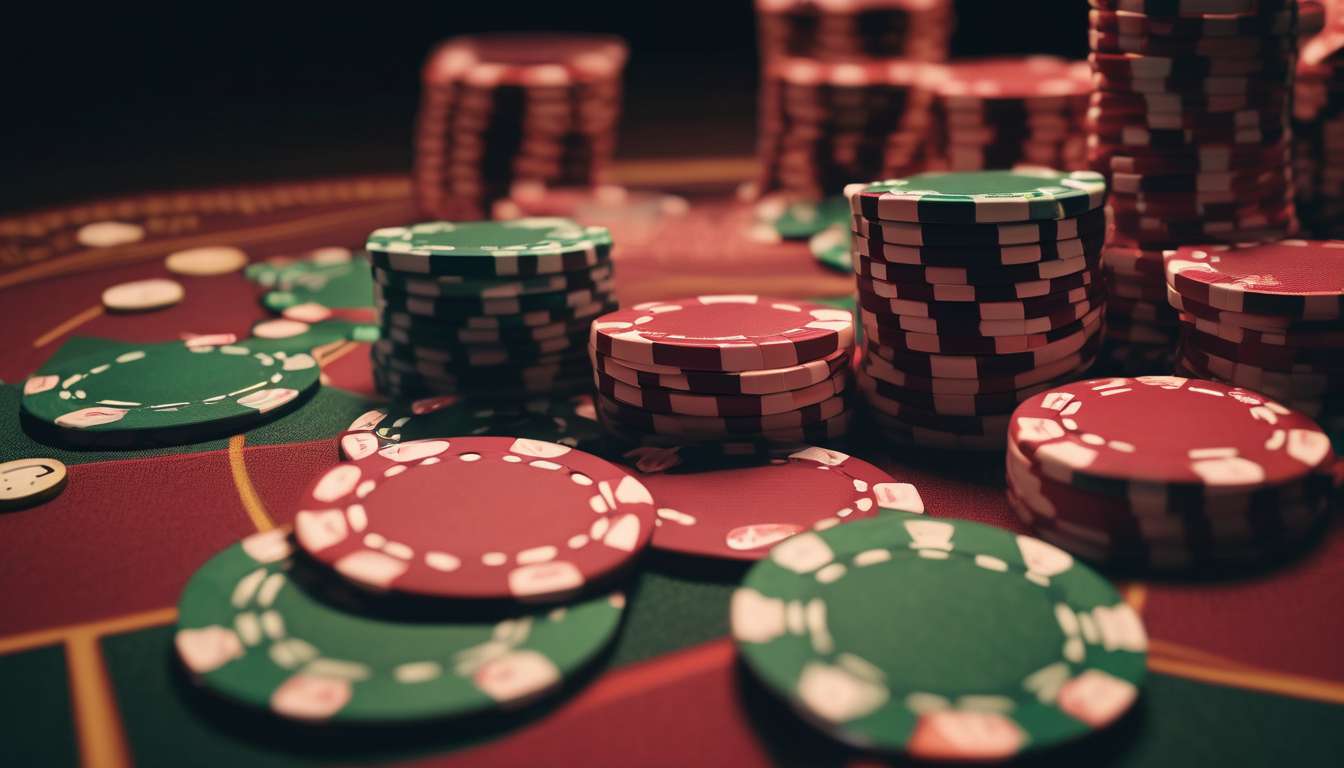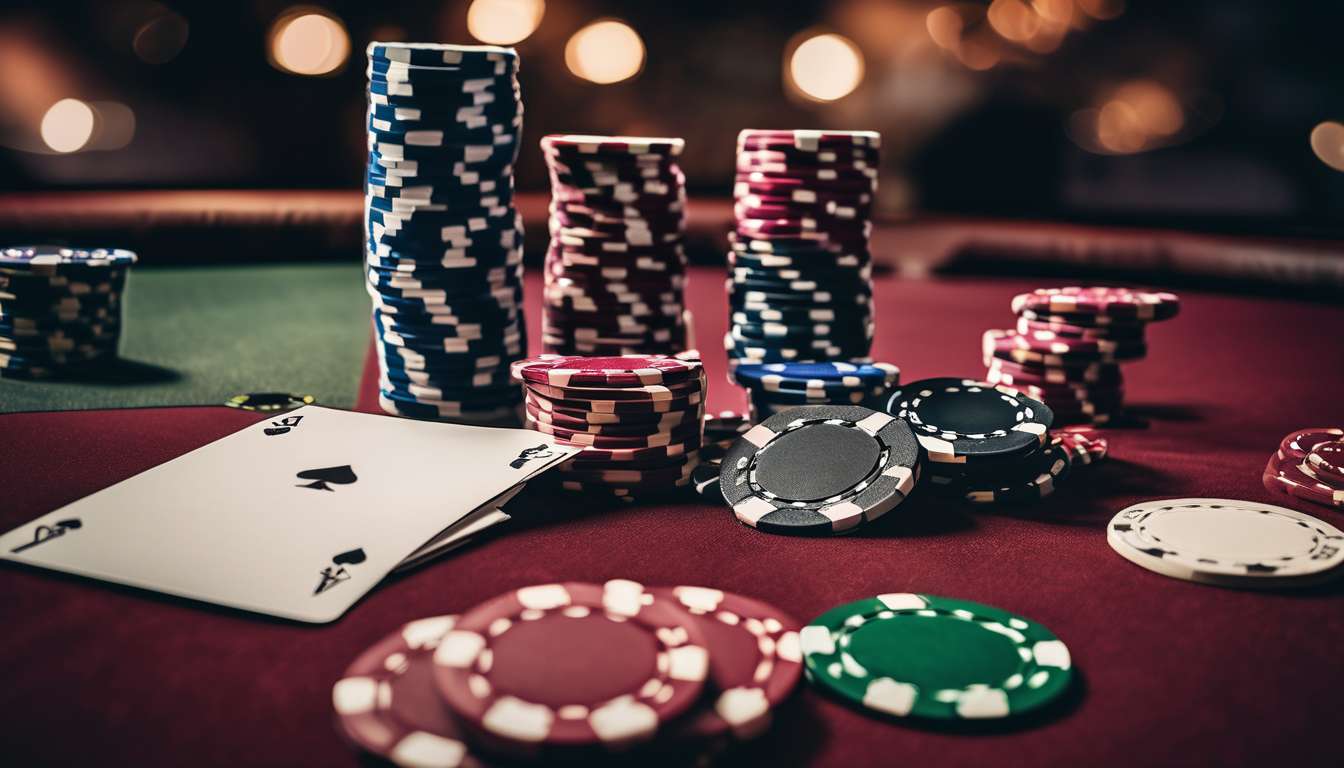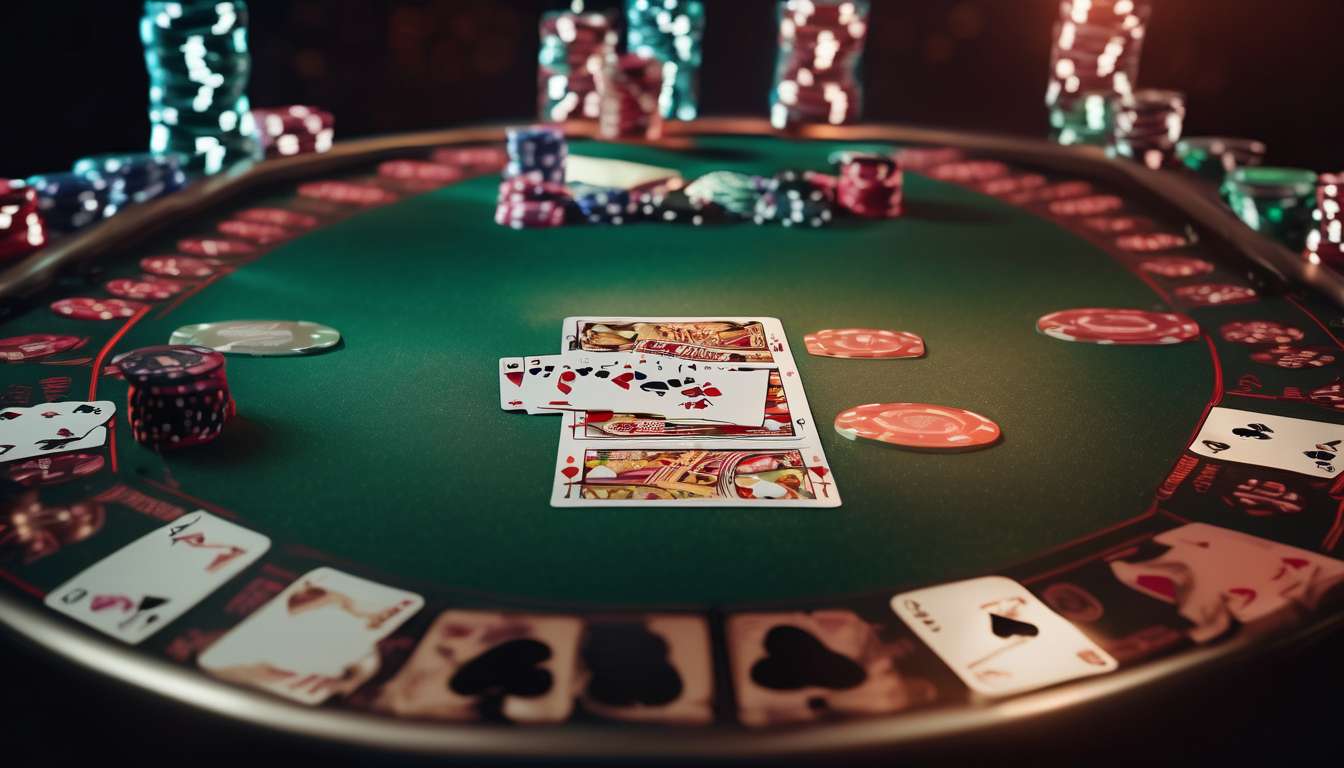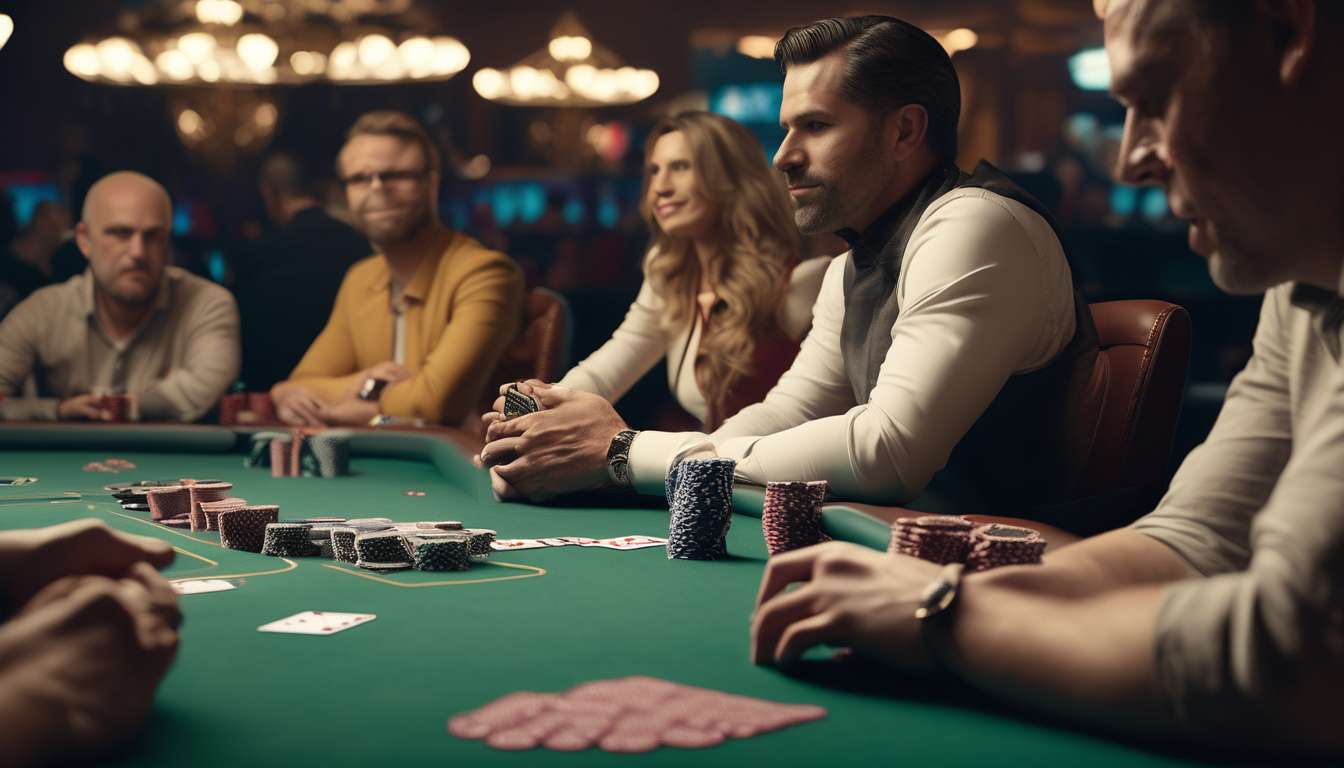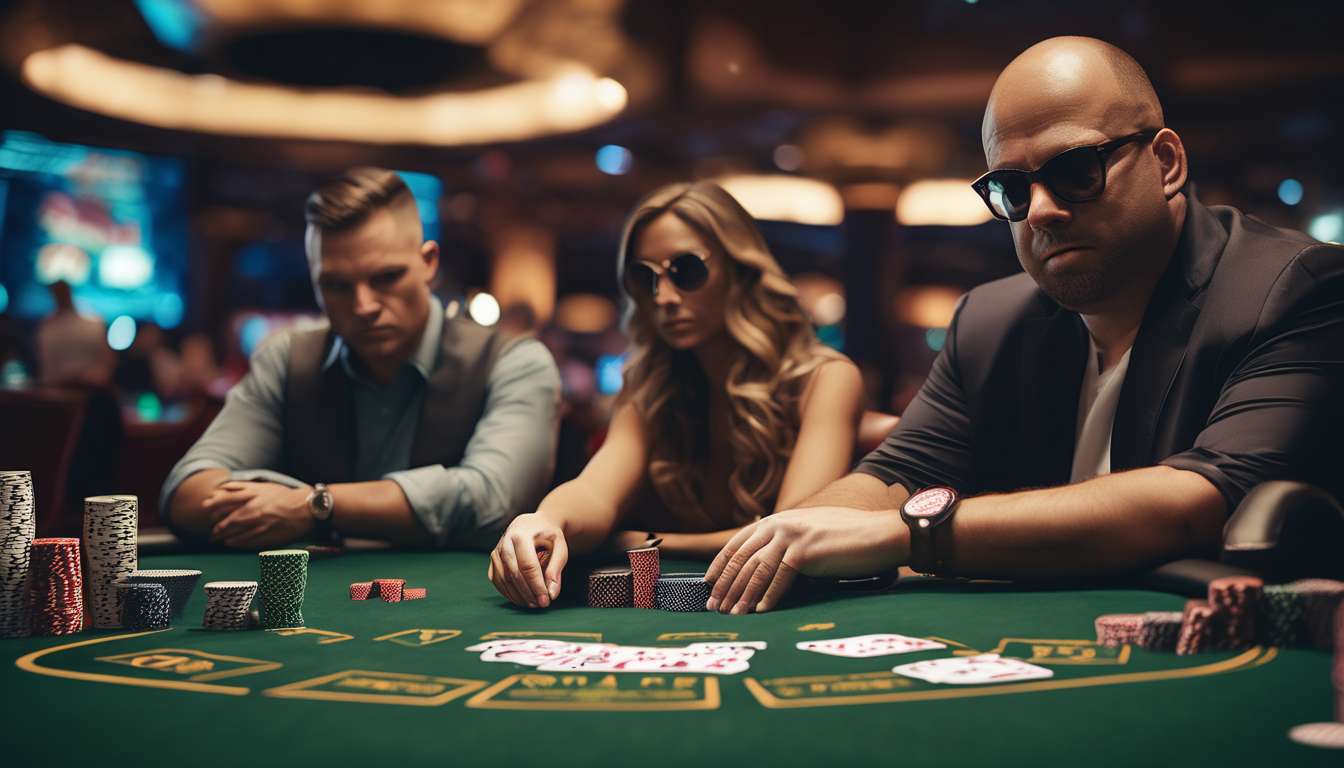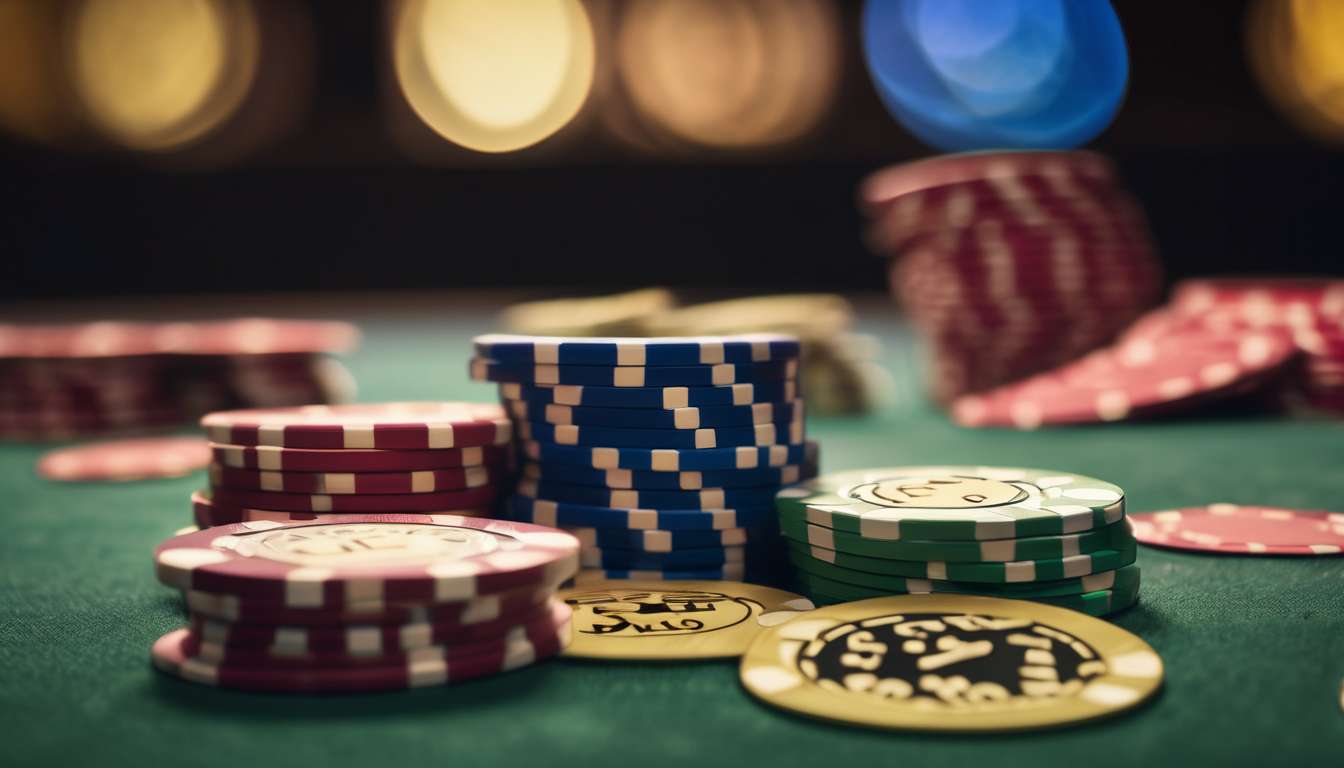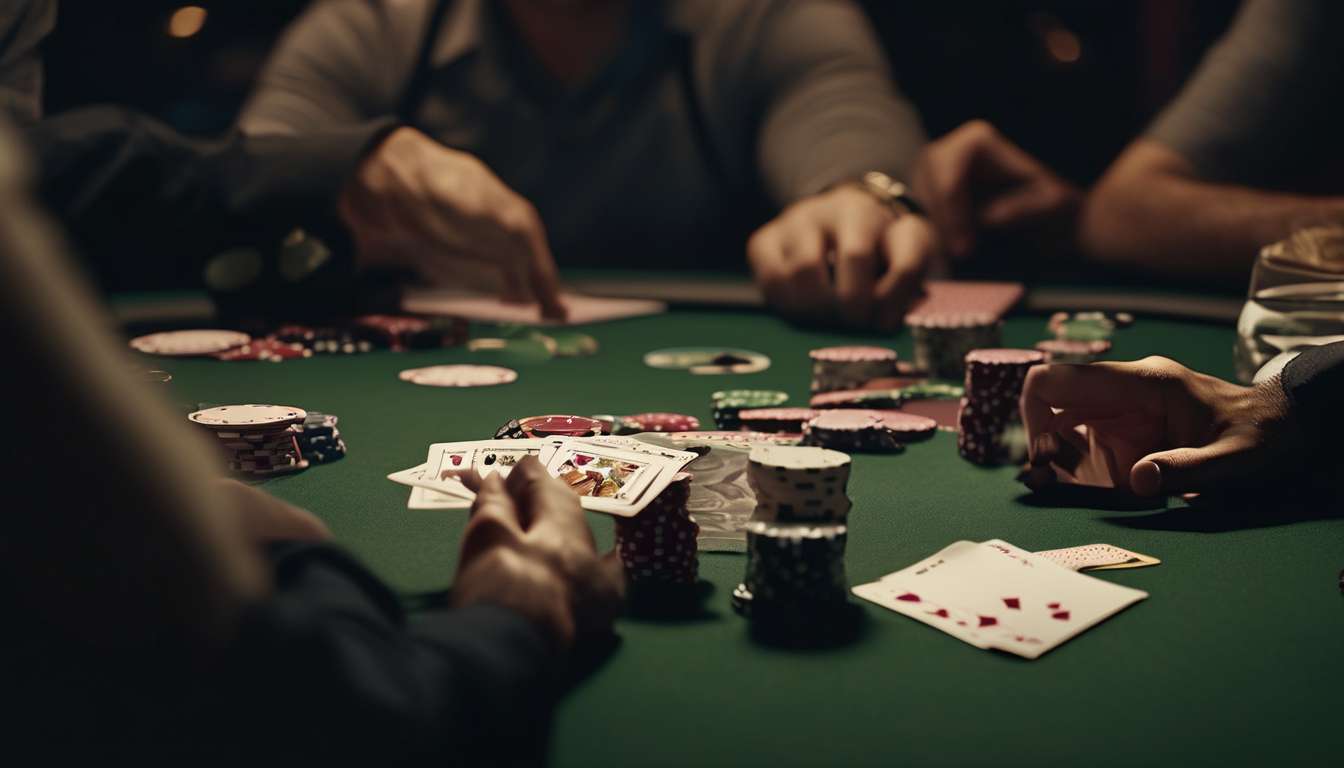Mastering the Art of Poker: Navigating Educational Resources
When it comes to mastering the art of poker, we find ourselves navigating a landscape rich with educational resources, each offering unique insights and strategies. As enthusiasts committed to honing our skills, we understand the importance of choosing the right learning tools to elevate our game.
Exploring Various Educational Tools
In this article, we embark on a journey to compare the diverse resources available to us, including:
- Online Courses
- Interactive Apps
- Books penned by legendary players
Objective
Our goal is to determine which avenues provide the most comprehensive education and the best return on our investment of time and effort. By exploring the strengths and weaknesses of each resource, we aim to equip ourselves with the knowledge necessary to become formidable opponents at the poker table.
Deep Dive into Educational Tools
Together, we will delve into the nuances of these educational tools, ensuring that we make informed decisions in our pursuit of poker excellence.
By methodically evaluating each option, we aspire to select the most effective resources that align with our learning style and objectives.
Online Courses Overview
Numerous online courses offer comprehensive poker education, allowing us to learn strategies and techniques at our own pace. By enrolling in these courses, we not only access a wealth of information but also become part of a community of like-minded individuals who share our passion for the game.
These courses often supplement their teachings with insights from legendary books, combining classic wisdom with modern methodology. This blend of resources ensures we’re not just learning in isolation but engaging with a broader poker tradition.
In our quest to master poker, these online courses stand out for their structured approach and expert guidance. They typically feature:
- Video lectures
- Quizzes
- Forums
These interactive elements reinforce our learning. The sense of community and shared growth is palpable, as we connect with fellow learners and instructors who inspire us to elevate our game.
By integrating knowledge from online courses, interactive apps, and legendary books, we’re setting ourselves up for success at the poker table.
Interactive Apps Evaluation
A multitude of interactive apps provide us with dynamic and engaging tools to refine our poker skills in real-time. They bridge the gap between the structured learning of online courses and the deeper insights found in legendary books. By offering instant feedback, these apps create a sense of community, where we can compete with others and track our progress together. We find ourselves immersed in a virtual poker world that’s always at our fingertips, allowing us to practice whenever and wherever we choose.
These apps often feature a variety of game scenarios, quizzes, and challenges designed to test and expand our understanding of poker strategies. They’re not just about playing hands; they’re about learning from each experience. By incorporating elements from both online courses and the wisdom of legendary books, interactive apps provide a comprehensive platform for growth.
Key Features of Interactive Poker Apps:
- Instant feedback on gameplay
- Variety of game scenarios
- Quizzes and challenges
- Community engagement and competition
- Progress tracking
They help us connect with fellow enthusiasts, share strategies, and foster a collective passion for the game we love.
Legendary Books Analysis
Countless renowned authors have penned legendary books that offer profound insights into the art and strategy of poker, shaping our understanding and mastery of the game. As a community, we cherish these books for the wisdom they impart, providing us with a shared foundation in poker’s intricate strategies. They’re more than just words; they connect us, offering a sense of belonging through common knowledge and experiences.
While online courses and interactive apps offer new, engaging ways to learn, legendary books remain invaluable. They allow us to explore the nuances of poker strategy deeply and at our own pace. We can revisit concepts, ponder different approaches, and cultivate our unique gameplay style.
In a world where digital resources dominate, these classic texts remind us of the timeless nature of poker’s core principles. Let’s continue to embrace these books, recognizing their role in our poker education alongside modern tools like:
- Online courses
- Interactive apps
Together, they enrich our journey toward poker mastery.
Comprehensive Curriculum Examination
A comprehensive poker curriculum should seamlessly integrate various educational resources to ensure we grasp both fundamental concepts and advanced strategies effectively. As a community of aspiring poker enthusiasts, we know the importance of using diverse tools to enhance our learning experiences.
Online courses offer structured learning paths and expert guidance that cater to our individual pace and style. They allow us to:
- Dive deep into theoretical aspects
- Reinforce our understanding
- Engage with a community through forums and group discussions
Interactive apps provide us with a dynamic platform to test our skills in real-time scenarios. They’re perfect for:
- Honing our decision-making abilities
- Adapting quickly to different situations
- Making our learning journey engaging and enjoyable
Legendary books remain an invaluable component of our curriculum, offering timeless wisdom and strategies from poker legends. They:
- Connect us to a tradition of poker knowledge
- Ground our modern approaches in tried and tested methods of the past
Together, these resources create a balanced and effective learning environment.
Strengths and Weaknesses Breakdown
Each educational resource in our poker curriculum comes with its own unique strengths and weaknesses, shaping how effectively we can master the game.
Online Courses
- Offer the flexibility to learn at our own pace
- Provide comprehensive lessons that fit neatly into busy schedules
However, they might lack the personal touch of direct interaction.
Interactive Apps
- Feature engaging interfaces that allow us to practice hands-on strategies
- Foster a sense of community through leaderboards and challenges
Yet, they can sometimes oversimplify complex concepts, leaving us craving more depth.
Legendary Books
- Provide wisdom from renowned poker minds
- Offer timeless strategies and profound insights
But these can often feel solitary and static, requiring self-discipline to fully digest.
By understanding these strengths and weaknesses, we can better navigate our learning paths in the poker world. Ensuring we balance our resources effectively is key. Let’s embrace each tool for what it offers, forging our path to poker mastery together.
Informed Decision-Making Process
To make informed decisions about our poker education journey, we need to evaluate each resource’s potential impact on our learning and skill development. We must consider how different tools fit into our community of poker enthusiasts, helping us grow both individually and collectively.
Online courses offer several advantages:
- Structured guidance and expert insights that enhance our understanding of complex strategies.
- A sense of connection with instructors and peers, fostering an environment where shared experiences lead to growth.
Interactive apps, on the other hand, provide:
- A dynamic way to practice and test our skills in real-time scenarios.
- Instant feedback, allowing us to fine-tune our strategies and learn from our mistakes in a supportive setting.
Legendary books, rich in history and wisdom, offer:
- A connection to the past while teaching timeless principles.
- An opportunity to dissect these texts together, gaining a deeper appreciation of poker and its nuances.
By weighing these options, we can choose resources that best support our collective poker journey.
Learning Style Alignment Assessment
Understanding our unique learning styles is crucial for selecting the most effective poker education resources. As a community of poker enthusiasts, we each have distinct preferences in how we absorb information.
For those who thrive in structured environments:
- Online courses are the perfect fit.
- They often offer a sense of community where we can engage with instructors and peers.
- This creates a collaborative learning atmosphere.
For those who enjoy a more hands-on approach:
- Interactive apps provide a dynamic way to learn.
- They offer real-time feedback and simulations that mirror live poker situations.
- These apps allow us to practice strategies at our own pace, like having a poker coach in our pocket guiding us through each hand.
The power of legendary books:
- Timeless resources that allow us to delve deep into the minds of poker greats.
- They offer insights that have stood the test of time.
By aligning our learning styles with the right resources, we enhance our poker journey together.
Effective Resource Selection Strategy
To choose the most effective poker resources, we must first evaluate our specific goals and current skill level. By understanding where we stand, we can select the tools that bring us closer together in our poker community.
Some of us might be beginners looking to grasp the basics, while others are advanced players aiming to refine strategies.
Poker Learning Resources:
-
Online Courses
- Offer structured learning paths.
- Cater to different skill levels.
- Perfect for those who thrive in a virtual classroom environment.
-
Interactive Apps
- Provide a dynamic way to practice skills on the go.
- Ideal for players who enjoy learning through engagement and repetition.
-
Legendary Books
- Connect us to the insights of poker greats.
- Offer timeless strategies that have stood the test of time.
- Valuable for those who appreciate the wisdom of the past.
By aligning our learning approach with our poker goals, we strengthen our skills and deepen our bond with fellow enthusiasts.
What are the best forums or communities for discussing poker strategies with other players?
We’ve found that the best forums or communities for discussing poker strategies with other players are often those that foster a sense of community and collaboration.
Key characteristics to look for in these platforms include:
-
Active Engagement: Platforms where members actively participate in meaningful discussions.
-
Valuable Insights: Communities that encourage the sharing of useful and practical insights.
-
Supportive Environment: A space where members support each other’s growth as poker players.
Benefits of joining such communities:
-
Building Relationships: Forming connections with a diverse group of players.
-
Learning Opportunities: Gaining new perspectives that enhance your understanding of the game.
-
Strategy Improvement: Collaborative learning can lead to significant improvements in your poker strategies.
By focusing on these aspects, you can find a community that not only enhances your poker skills but also provides a network of support and shared learning.
How can I find a mentor or coach for personalized poker learning?
Seeking a Mentor or Coach for Poker Learning
When looking for personalized poker learning, it’s important to consider the following steps:
-
Reach Out to Established Players
Begin by connecting with experienced players within your network. These individuals can provide valuable insights and guidance. -
Find a Compatible Teaching Style
- Look for a mentor whose teaching style matches your learning preferences.
- This ensures that the advice and support you receive are tailored to your needs.
-
Enhance Your Skills
With the right mentor, you can receive personalized feedback and strategies to improve your performance at the poker tables.
Key Takeaway: Connecting with an experienced mentor who aligns with your learning style can significantly boost your development as a poker player.
What are some recommended podcasts or YouTube channels for staying updated on poker trends?
We love staying in the loop with the latest poker trends through podcasts and YouTube channels.
Some recommended podcasts include:
- "The Chip Race": Offers insightful interviews and strategy discussions.
- "PokerNews Podcast": Provides news updates on the poker world.
When it comes to YouTube, consider these channels:
- "Doug Polk Poker": Offers valuable content for sharpening skills.
- "Crush Live Poker": Provides insights into the current poker landscape.
These resources keep us connected and informed about the ever-evolving poker scene.
Conclusion
In conclusion, comparing various poker learning resources can help you make informed decisions that align with your learning style.
By evaluating:
- Online courses
- Interactive apps
- Legendary books
- Comprehensive curriculums
you can effectively select the resources that suit your needs.
Understanding the strengths and weaknesses of each option will guide you towards a successful poker education journey.

